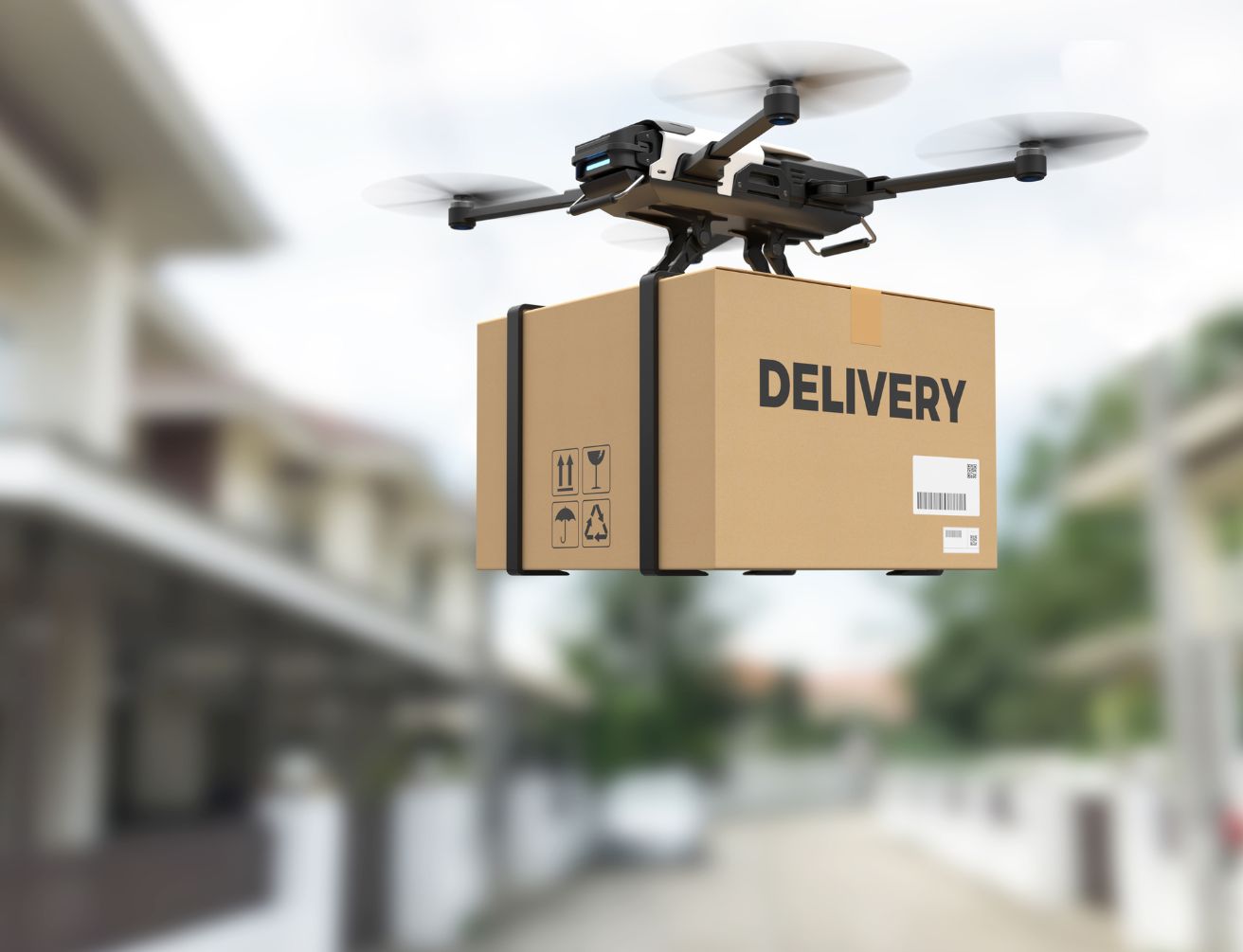Australia’s role in COVID-19 recovery lies in its diverse economy

May 28, 2020
The COVID-19 crisis has upended local and global economies, disrupted supply chains and prompted politicians and the global citizenry alike think about what sort of world we want to live in. The immediate focus is on economic recovery but the subsequent focus on reform represents an opportunity for meaningful change. In Australia, our manufacturing and knowledge sector capabilities provide an opportunity to re-think the pre-COVID economic paradigm that places little value on waste, inequality and environmental destruction. It is time to use our strengths to strive for economic growth that closes the social inequality gap and creates true environmental stewardship.
Opportunities to recover and reform
The spread of COVID-19 in Australia has been, for the most part, contained through a series of pro-active measures implemented within a relatively stable and trusted political structure by global standards – supported by a compliant population on a developed island nation located well away from global infection hotspots.
That we have managed to weather global crises like the COVID-19 pandemic and the Global Financial Crisis under both Liberal and Labour governments points to an inherently robust political, bureaucratic and economic structure, underpinned by a mix of natural resource wealth, high educational standards and a democratic system.
But it is not all roses. Australia, like many countries, is reeling economically from the current COVID-19 pandemic. And, as a nation, we lag many other countries on the global stage when it comes to taking action on core issues such as the climate crisis. Our increasing inequality gap – nationwide but most acutely in our indigenous communities – high cost of living, and heavy reliance on global supply chains to supply many basic requirements illustrates the flaws in our system.
The COVID-19 crisis and our structural resilience provide Australia with an opportunity not only to lead the way on global recovery but also to reform the flaws in our political, social and environmental systems for national and international good.
The advantage of a diverse economy
Australia’s economy has traditionally been driven by agriculture, manufacturing and, more recently, the resources sector. As globalisation brought countries closer together and increased competition, Australia’s economy shifted towards a “knowledge economy”.
Since 1989, manufacturing has halved its share of contribution to Australia’s economic activity (from 12 per cent to 6 per cent) while professional, scientific and Technical services and Financial services combined has increased by almost half (to 17 per cent). Significantly though, while manufacturing has declined as a share of total economic activity, the size of its contribution has increased by 16 per cent over that time.
This suggests that while manufacturing has been overtaken by knowledge intensive service industries, its economic contribution continues to grow. This is likely driven by advances in both what we produce and how we produce it.
But while this transition has pushed Australia further towards a service-sector country and away from an economy driven by production, this transition is still underway. Australia still has a foot in both camps, and this economic diversity is an advantage for us in the current climate.
The COVID-19 crisis has revealed that a pandemic of this scale hugely disrupts global supply chains, which in turn impacts national economies. Nations that can both develop technological innovation and produce the high-technology equipment needed to fight the pandemic stand to play important leadership roles.
Australia is one of these countries
We already do it in sectors such as medical and biotechnology. For a nation of our size and geographic remoteness, we punch above our weight. Oft-cited companies such as Cochlear and ResMed are examples of companies who integrate high technology and research with advanced manufacturing for global markets. There are many more that are not household names.
Biotechnology, innovation and health and education precincts are emerging throughout the country. These precincts harness cross-fertilisation of ideas by bringing together private enterprise, research and manufacturing businesses.
In one example, Sydney’s future airport in Western Sydney will be bolstered by an advanced manufacturing and agribusinesses “aerotropolis”.
The relevance of these precincts to Australia’s future continues to increase.
Re-thinking Australia’s role in the value chain
The Australian economy tends to engage with global supply chains at both ends. At the one end, we export a considerable quantity of raw or semi-processed materials such as iron ore, aluminium, rare and precious metals and increasingly lithium overseas. At the other, we import back into the country finished products often comprised of our raw materials.
Our geographic distance, lack of manufacturing scale, and high cost of labour has meant that we are unable to undertake many of the value-adding processes that countries such as China can.
However, the disruption that the COVID-19 crisis has caused global supply chains should make us question whether more can be done in Australia to add value to the materials we export. This approach could take advantage of two circumstances.
Firstly, the rise of med-tech and biotech has meant that high-value products are often now constructed domestically, at the source of the research, with close quality assurance oversight and in partnership with investment partners (and end-customers) such as hospitals and medical research institutes.
What this means is that specialised equipment is now often manufactured in Australia without the need for manufacturing scaling in cheaper overseas markets.
A recent report on the provision of 250 defective ventilators to the UK from China highlights the need for production of these highlight technical pieces of equipment to have high levels of product quality and assurance.
This presents a significant opportunity to re-think Australia’s relationship with manufacturing and its trading partners who need specialised medical equipment to grapple with the COVID-19 crisis.
Secondly, there is the opportunity to consider whether more value-adding happens domestically to minimise the global dispersion of production processes as a way of safeguarding against future supply chain shocks.
This is not to argue for the re-shoring of all manufacturing. Instead, it raises the prospect of strategically targeting industries that add value to our natural resources, have a direct link to knowledge sector industries, and take advantage of the advanced manufacturing processes and technologies that are increasingly driving Australia’s manufacturing sector.
One example is the potential to transition from lithium export to lithium battery or componentry manufacturing by integrating advanced manufacturing and knowledge sector capabilities to add value to our exported goods.
Australia’s political and organisational adaptability to the COVID-19 crisis has also highlighted the versatility that exists in key sectors of our economy.
Highly skilled labour markets and strong links between the public and private sector have enabled many businesses to respond to the call to focus production efforts on things ranging from hand sanitisers to Personal Protective Equipment (PPE) and ventilators.
For now, the Australian population has been shielded from the worst of the health impacts of COVID-19. However, many other countries have not been so fortunate.
We are in an excellent position to re-think our supply chain relationships and export, rather than import, products to a global market that fit within existing and emerging competitive advantages.
The acute nature of current demand also necessitates an ability to reach markets quickly, and so freight and logistics partners are vital. Could a partnership with our mostly grounded air carriers see them re-purposed for freight movement over the coming months to deliver products directly to countries in need?
Australia – the lucky country?
As the adage goes, out of crisis comes opportunity. Australia has an established resources sector, highly skilled workforce, advanced manufacturing capabilities, stable political system and established trade network. In the short term this means we have the opportunity to help support countries in need as they seek to deal with COVID-19 crisis. In the longer term this creates a platform for us to re-think our relationship with manufacturing and how it can integrate with our knowledge sector economy aspirations.
This opportunity also prompts us to ask ourselves not just what we can do, but how we can do it and – most importantly – why we should.
How do we do this? Embrace new ways of integrating our knowledge and manufacturing sectors by using renewable energy technologies and meaningful labour market participation.
Why should we do this? Because we are fortunate – lucky – to be in a position to do so, and some nations would benefit from our skills and knowledge. But beyond the recovery effort is a once in a century opportunity to reform what we do and how we do it.
As we gradually recover from the COVID-19 crisis, we will find ourselves at a fork in the road.
One road will take us back to a well-trodden path of waste, social inequality and continued environmental degradation.
The other is a road towards economic growth predicated on a desire to close the social inequality gap, maintain meaningful employment and create true environmental stewardship through a transition toward a circular economy.
This opportunity means re-thinking the reductive assumption that a transition towards a knowledge economy is a transition away from a manufacturing one.
The first steps along this path may be harder to take, but ultimately it is a path that generation after generation can continue to journey along long into the future. It is a path that requires us to reform how we think and how we make.
A country like Australia – with its diverse productive and innovative capabilities – needs to take charge and choose the right path. Anything less would not just be a missed opportunity but a failure to lead.
Article credit – https://www.thefifthestate.com.au/business/investment-deals/australias-role-in-covid-19-recovery-lies-in-its-diverse-economy/





